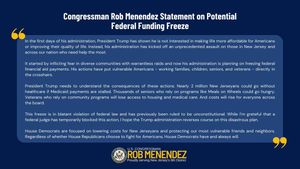France is undergoing significant political upheaval following Prime Minister François Bayrou's invocation of Article 49.3 of the Constitution, allowing for the 2025 budget to be approved without legislative voting. This controversial maneuver has triggered immediate reactions from opposition parties, with La France Insoumise (LFI) already filing motions of censure against the Bayrou government.
On the evening of February 3, 2025, François Bayrou addressed the National Assembly to activate Article 49.3, stating, "Un pays comme le nôtre ne peut pas rester sans budget. Le seul moyen, c'est d'engager la responsabilité du gouvernement. Ce sera fait ce lundi" (A country like ours cannot remain without a budget. The only way is for the government to take responsibility. It will be done this Monday). His action was meant to swiftly push the state budget and the Social Security financing bill through the legislative process, circumventing what he anticipated to be insufficient support.
The invocation of 49.3 allows the budget to be considered adopted, barring successful motions of censure filed within 24 hours. The LFI, quickly taking up the challenge, filed two motions aimed at collapsing the Bayrou government, one of which was reported to be led by Mathilde Panot alongside 90 fellow deputies.
This situation follows the approval of the budget plan earlier, on January 31, during negotiations between the Senate and National Assembly. Yet, the political climate remains fraught with tension, as identified in remarks by Deputy Arthur Delaporte: "Depuis plusieurs semaines, nous nous sommes engagés dans des négociations avec le gouvernement pour faire modifier le budget" (For several weeks, we have been engaged in negotiations with the government to amend the budget).
The upcoming days are pivotal. The LFI's motions for censure will be subjected to scrutiny and voting by Wednesday. Bayrou's fate hangs on the Republican party's response, alongside the National Rally's future stance. They are expected to finalize their position on whether to support or oppose Bayrou’s government. The RN has opted to postpone their decision-making until Wednesday, as stated by one deputy: "La position du RN quant à une motion de censure sera arrêtée mercredi" (The RN's position on a censure motion will be decided on Wednesday).
The Socialist Party (PS) has complicated the political calculus by choosing not to support the LFI's motions of censure. Their decision, influenced by party unity and fears surrounding governmental stability, came after significant deliberation within their ranks. Their official justification noted the need to maintain parliamentary functionality during budget discussions: "Nous prenons la décision de ne pas censurer le gouvernement au moment où la France attend de disposer d'un budget" (We decide not to censure the government at a time when France expects to have a budget).
With the PS expressing intentions to later introduce their own symbolic motion of censure, the situation points to increasing fragmentation within opposition alliances. While the PS has reassured its electorate of responsible governance, prominent figures like Jean-Luc Mélenchon have criticized their course as creating ambiguity around their opposition stance, saying: "Cette décision du PS, qui 'consomme son ralliement au gouvernement Bayrou'" (This decision by the PS, which 'consumes its rallying to the Bayrou government').
The clock is ticking down to the vote on the motions of censure, with contrasting reactions highlighting potential fractures within the opposition's ranks. Some factions express solidarity to reinforce governmental stability, viewing the budget discussions as pertinent to national interests. Opposing this sentiment, critiques on the austerity measures within Bayrou's proposed budget echo loudly, particularly from the LFI, who, according to Manuel Bompard, warn about substantial cuts affecting the environment and education.
With censure votes looming, this week will be historically significant for both the policy direction of the French government and the robustness of its political alliances, solidifying the theme of political instability within the current legislature. Expectations run high, and many factions will weigh their options heavily amid heightened scrutiny from constituents and rival parties. Will the government successfully navigate through these turbulent times, or will the motions of censure spell the end for Bayrou’s cabinet? Only time will tell, as the dialogue matters shift prominently, placing fiscal responsibilities at the forefront of national discourse.



